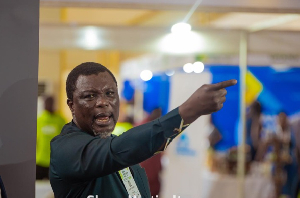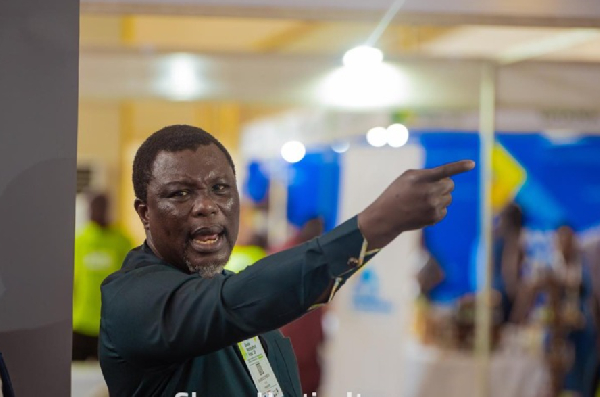 Davis Korboe, is the President of the Federation of Associations of Ghanaian Exporters (FAGE)
Davis Korboe, is the President of the Federation of Associations of Ghanaian Exporters (FAGE)
Davis Korboe, the President of the Federation of Associations of Ghanaian Exporters (FAGE), has asserted that Ghana is sitting on an “agro-ecological goldmine”, a wealth of fertile soils, diverse microclimates, and abundant rainfall that, if properly harnessed, can transform the country’s horticultural sector into a major engine of export-led growth.
Speaking at the opening of the Ghana Horticulture Expo 2025 at the Accra International Conference Center on June 11, 2025, Korboe said Ghana’s natural agricultural endowments and strategic geographic positioning offer a unique advantage in the global horticulture market.
However, he warned that low productivity levels, weak infrastructure, and post-harvest losses which account for more than 30% of produce, continue to hamper the sector’s full potential.
Themed “Innovate, Transform, Sustain: Driving Growth in Ghana’s Horticultural Sector,” the second edition of the Expo brought together government officials, captains of industry, agripreneurs, exporters, researchers, and development partners to explore new strategies for scaling up Ghana’s horticultural value chain.
Korboe noted that while Ghana boasts over 60% of its labor force engaged in agriculture, average yields for high-value crops such as pineapples, mangoes, and vegetables remain below international standards.
“We are not just here to sell fruits and vegetables,” he said. “We are here to build futures — jobs, industries, and competitive export systems.”
He described Ghana’s emerging 24-Hour Economy policy as a game-changing opportunity for the horticultural sector, suggesting that around-the-clock agricultural operations, from nighttime irrigation and agro-processing to 24/7 logistics and digital trade, could revolutionize output, reduce waste, and boost global competitiveness.
“A 24-Hour Agribusiness Economy will not only increase productivity but decongest operations, create quality jobs, and enhance our position in international markets.” Korboe pledged FAGE’s commitment to piloting and scaling such innovations in partnership with government and private sector stakeholders.
The Chief Executive Officer of the Ghana Export Promotion Authority (GEPA) announced a new Youth in Export Programme, aimed at engaging young people in export-led horticulture, particularly in underserved communities.
“The horticultural sector holds immense promise for us as a key driver of economic diversification, job creation, and foreign exchange earnings.
“The Ghana Export Promotion Authority is working in collaboration with the Federation of Associations of Ghanaian Exporters and other stakeholders to roll out the Youth in Export Programme, targeting young people in communities across the country.”
Chairperson of the Expo and Executive Chairman of Celltel Networks, Dr Prince Kofi Kludjeson, called for equity reforms to strengthen private sector participation in agriculture.
“We cannot transform Ghana’s economy if farmers remain disadvantaged in ownership and investment,” he said.
He also advocated for local grocery franchises and smart agriculture systems to meet domestic and international demands.
President John Dramani Mahama, outlined a comprehensive plan to revitalize the horticulture sector, beginning with the renewal of the Feed Ghana initiative, which will run from 2025 to 2028.
The programme includes targeted interventions such as the Yeridua (“We Are Planting”) Vegetable Development Project, Smart Agriculture and Farmer Support Centres, and Agribusiness Youth Clinics to support young agripreneurs with skills training, funding, and mentorship.
He emphasised the moral and economic urgency of the reforms, describing the struggles of farmers as not only technical challenges but national ethical concerns.
“Can a nation prosper if the very hands that feed it remain its most neglected?” he asked.
AM/KA
